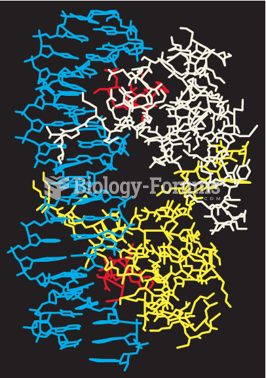|
|
|
There are immediate benefits of chiropractic adjustments that are visible via magnetic resonance imaging (MRI). It shows that spinal manipulation therapy is effective in decreasing pain and increasing the gaps between the vertebrae, reducing pressure that leads to pain.
The Centers for Disease Control and Prevention (CDC) was originally known as the Communicable Disease Center, which was formed to fight malaria. It was originally headquartered in Atlanta, Georgia, since the Southern states faced the worst threat from malaria.
More than 150,000 Americans killed by cardiovascular disease are younger than the age of 65 years.
Multiple experimental evidences have confirmed that at the molecular level, cancer is caused by lesions in cellular DNA.
Complications of influenza include: bacterial pneumonia, ear and sinus infections, dehydration, and worsening of chronic conditions such as asthma, congestive heart failure, or diabetes.
 The thorax of apes, including humans, is broad but shallow in contrast to the narrower, deeper chest
The thorax of apes, including humans, is broad but shallow in contrast to the narrower, deeper chest
 Using a bright light makes seeing where the smoke is coming from easier. In this case, smoke was ...
Using a bright light makes seeing where the smoke is coming from easier. In this case, smoke was ...





